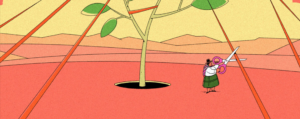By WOLA Executive Director Joy Olson
In recent years, WOLA has joined others in working to close the Guantanamo detention facility. In 2014, Uruguay offered to resettle six former prisoners, who had been cleared for release but had nowhere to go, providing them with a new chance at life. Below is a first person account by WOLA’s Executive Director, Joy Olson, who recently traveled to Uruguay to explore the situation more than a year after the six detainees were resettled.
There are heroes in the story of the resettlement of Guantanamo detainees. Lots of them.
I met a few of them last week. They are Uruguayans. Some of them are people who suffered during their own dirty war in the 1970 and 80s. Some have given extraordinary amounts of their own time to help these former detainees make the transition.
One person I met was a former government official who has provided advice and friendship to the former detainees; another, a union leader who drives the men to their doctors’ appointments. And there are so many others who have helped in the transition, not to make some political statement, but because they see men who need help and know they can make a difference by showing human kindness.
It is important to clarify that the detainees we are talking about are not the perpetrators of 9/11. We are talking about men who have been unanimously “cleared for release” by six U.S. government agencies, people never even charged with a crime. Many were sold for bounty to the United States. They are men who themselves are victims of injustice.
Yet, in the United States, the central question about those being released from Guantanamo is, “How dangerous are they, and will they hurt us in the future?”
Not everyone in the world sees it that way – certainly not Uruguayans.
Beyond the borders of the United States, these men are seen more for what they are, people who have suffered and who need to figure out how to have a life after Guantanamo.
People in this region have a reason to understand the plight of the cleared Guantanamo prisoners. Many present day leaders in Southern Cone countries were imprisoned during the region’s military dictatorships. This includes former Uruguayan President José Mujica, who was held prisoner for 13 years, some of it spent in a hole in the ground.
Here’s what I learned from my visit to Uruguay a little more than a year after the resettlement of the prisoners from Guantanamo:
- No one in this country talks about a problem, or potential problem, with terrorism as a result of the resettlement. There is criticism that the government’s plan to receive the men was not developed well enough. But the issue isn’t terrorism, rather, it is about how do you help the former prisoners adjust to life in Uruguay.
- Recovering from life in Guantanamo is no cakewalk. These men are not just refugees in a strange land. They were in prison for more than 10 years. They were held within a framework of “indefinite” detention. Their ability to trust has been broken. The only control they had while in prison was over their own bodies. Some participated in hunger strikes, which has left its own physical damage. Adjusting to life in a country not their own, where they must learn a new language, has not been easy. Adjustment is a process, but they are moving forward.
- There are heroes in this resettlement story—Uruguayans who have shown kindness to people gravely wronged by the United States.
The transition process moves forward in fits and starts. It is not easy. I am thankful for the Uruguayans who see this situation for what it is: a difficult transition for people who have suffered. These Uruguayans are helping the former detainees become what they are now, men just trying to get on with life.

